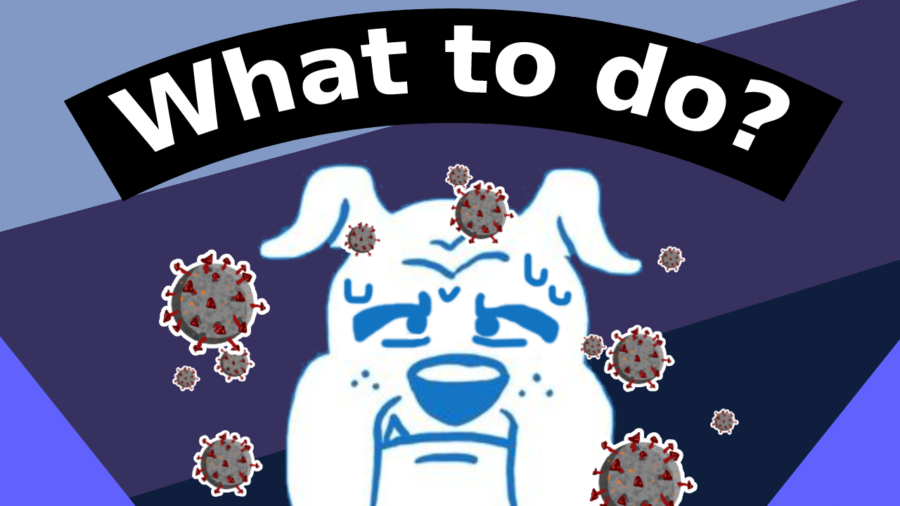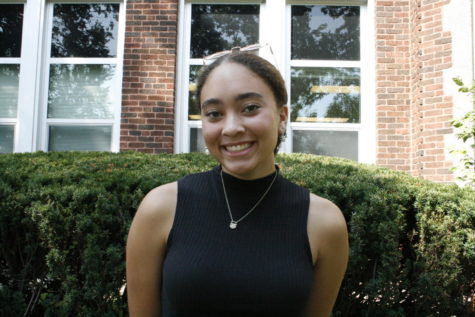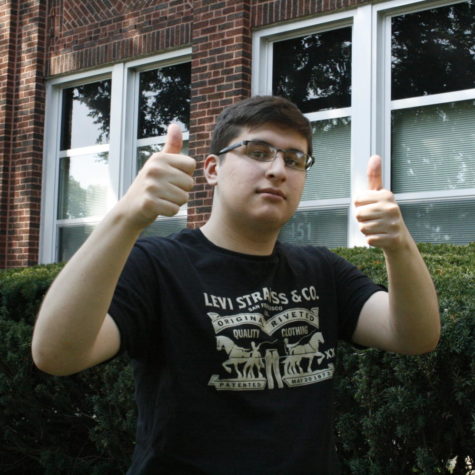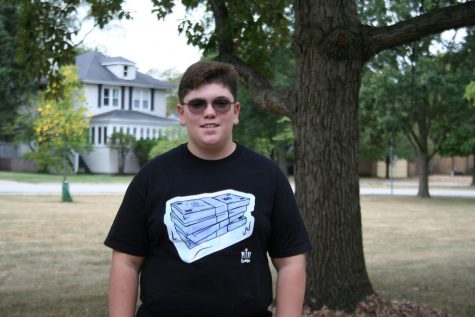A Look at RB’s Pandemic Protocols
The question sparks: What happens if a Bulldog gets COVID?
September 7, 2021
With COVID-19 still needing to be taken into consideration within schools across the nation, new protocols have been initiated at Riverside Brookfield Highschool to help stop the spread. Because many people at the school are now vaccinated, the vaccination status of the students are taken into account when determining COVID protocols. Also, since clubs, sports, and other activities are regularly meeting, there are more factors to consider in containing COVID-19 spread.
Regardless of vaccination status, students who get COVID-19 are automatically subjected to ten days out of the building. The first day a student starts to show symptoms is day zero, and the following day starts the ten day quarantine. Students who continue to show symptoms towards the last few days of quarantine are asked to call the school for further direction.
“If you still have symptoms on your eighth, ninth, or tenth day, we ask that you give us a call, and we are probably going to ask to hold you out of the building a little bit longer until you are symptom free. The most important thing is that you are not coming to school ill in any capacity,” Cara Weinberg, Dean of Students, said.
It is crucial for the school to be notified immediately when a student gets COVID-19, and the sooner the better. By contacting the school immediately, there is more room for communication between the administration and the student’s family to determine what virtual school plan is best fit for the individual.
“If you test positive for COVID, we want you or your parents to get in touch with us right away, and what we will do then is work with our Assistant Principal of Curriculum, our Assistant Principal of Student Services, and your counselor to determine what the best course of remote learning is for you,” Weinberg said.
Students who are vaccinated and have experienced exposure to COVID-19 are not required to quarantine; however, they are asked to look out for future symptoms. If the vaccinated student is symptomatic, they must stay home until they are twenty-four hours symptom free, though a COVID-19 test is optional. On the other hand, unvaccinated students who were exposed and are asymptomatic, must take a COVID-19 test on day one, three, five, and seven in order to stay at school. If an unvaccinated student shows symptoms of COVID-19 or is exposed to the virus at home, a seven-day quarantine alongside a test within forty eight hours of the sevnth day is required.
Contact tracing varies case to case. Factors such as where the exposure occurred, time in contact, and vaccination status all play a role in determining the next steps. When a student gets COVID while participating in a sport, administration takes a deeper look to see if any other team mates are at risk.
“If someone tested positive, and then they show up to practice indoors, we contact trace any close contact from that student. That would mean anyone who was within three feet for over fifteen minutes. Then we look at our list and out of the players that were in close contact, we see if they are vaccinated or not vaccinated,” Alberto Jaquez, another Dean of Students, said.
The administration and Cook County Health Department are working hand in hand to ensure the best possible COVID-19 protocol. The school is following the steps of the county and is also obligated to adapt if the county states a change in protocol.
“We are probably on the phone with Cook County two to three times a week. We report all of our positive cases to the county, and we work with them on the quarantine days,” Weinberg said.
In order to stop the spread of the virus, Weinberg hopes that students and parents remain transparent if a student is exposed to or contracts COVID-19. While many believe there is a stigma associated with contracting the virus, she wants to make sure that students do not feel ashamed if they were exposed to the virus in order to keep the school open.
“There is no stigma associated with this [contracting COVID-19]. If you are sick, we have to know. There is no shame, no judgment… If you don’t feel good or you know you were in close contact with someone with COVID-19, please give us a call so we can work with you. We are really only able to keep the building open if we can avoid having COVID-19 spread here, and we need your help to do that,” Weinberg said.





Azu • Sep 8, 2021 at 12:11 pm
Madison Lester is so informative and amazing <3